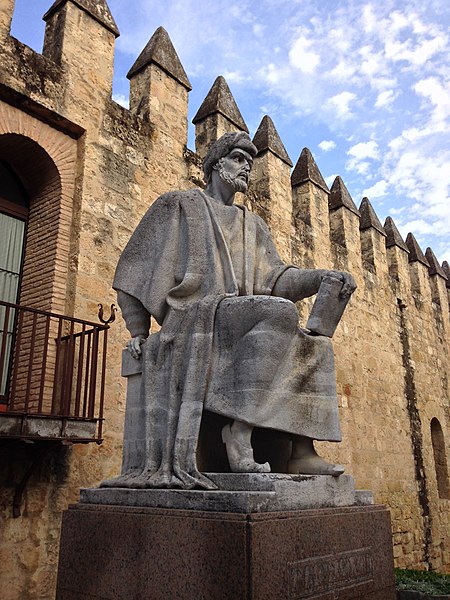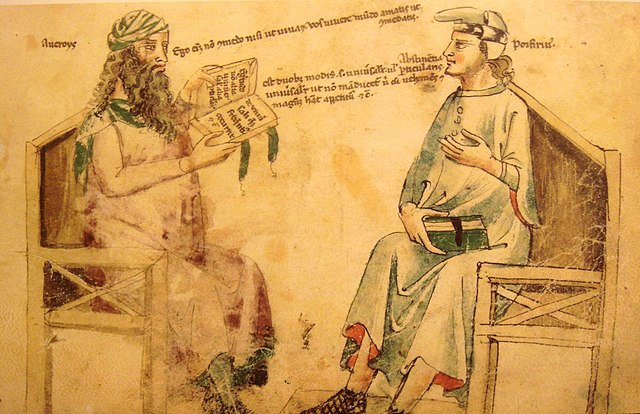Ibn Rushd, often Latinized as Averroes, was an Andalusian polymath and jurist who wrote about many subjects, including philosophy, theology, medicine, astronomy, physics, psychology, mathematics, Islamic jurisprudence and law, and linguistics. The author of more than 100 books and treatises, his philosophical works include numerous commentaries on Aristotle, for which he was known in the Western world as The Commentator and Father of Rationalism.
Statue of Averroes in Córdoba, Spain
Detail of Averroes in a 14th-century painting by Andrea di Bonaiuto
Imaginary debate between Averroes and third-century philosopher Porphyry. Monfredo de Monte Imperiali Liber de herbis, 14th century
An Arabic illustration of Aristotle teaching a student, c. 1220. Aristotle's works are the subject of extensive commentaries by Averroes.
Al-Andalus was the Muslim-ruled area of the Iberian Peninsula. The term is used by modern historians for the former Islamic states in modern-day Gibraltar, Portugal, Spain, and Southern France. The name describes the different Muslim states that controlled these territories at various times between 711 and 1492. At its greatest geographical extent, it occupied most of the peninsula and part of present-day southern France (Septimania) under Umayyad rule. These boundaries changed constantly through a series of conquests Western historiography has traditionally characterized as the Reconquista, eventually shrinking to the south and finally to the Emirate of Granada.
19th-century portrait of Abd al-Rahman I, from Estoria de España.
Interior of the Mosque–Cathedral of Córdoba, the former Great Mosque built by Abd ar-Rahman I in 785, later expanded by his successors
Abd al-Rahman III receiving ambassador John of Gorze of Otto I the Great at the Medina Azahara, by Dionisio Baixeras Verdaguer, 1885.
A silk textile fragment from the last Muslim dynasty of Al-Andalus, the Nasrid Dynasty (1232–1492), with the epigraphic inscription "glory to our lord the Sultan".








